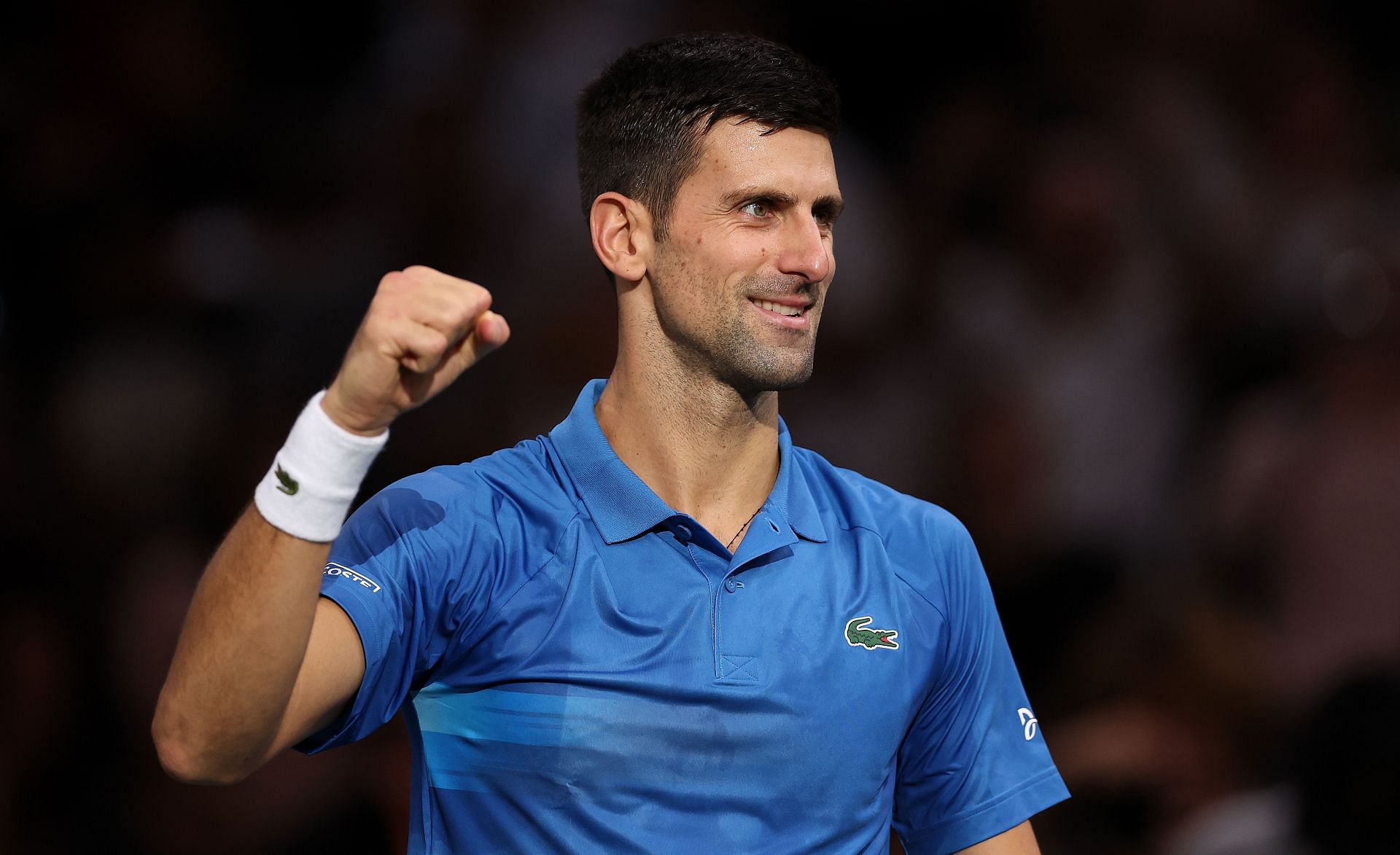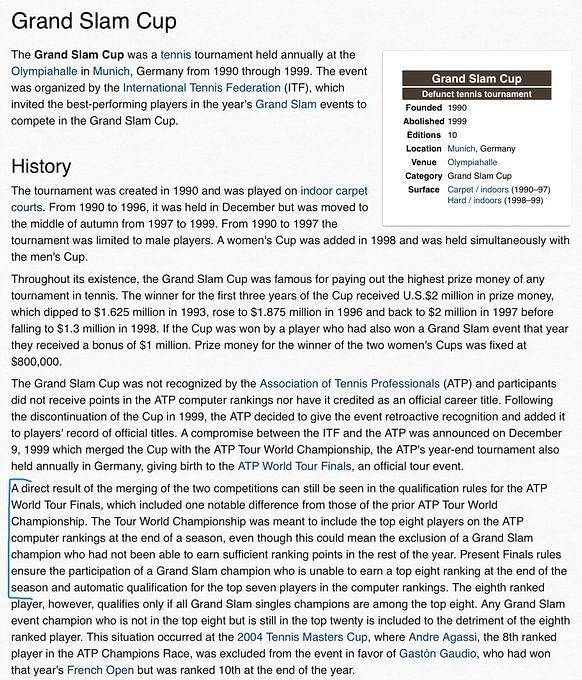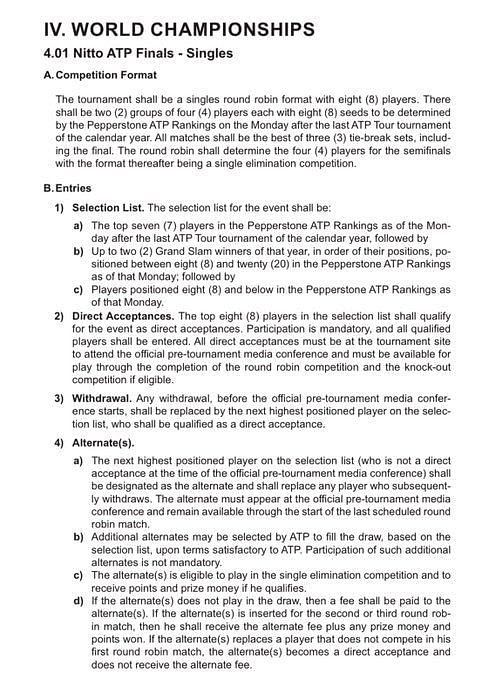
Explained: Novak Djokovic's ATP Finals qualification and why it is completely justified
To say Novak Djokovic's 2022 ATP Finals qualification has become the talk of the town during the Paris Masters would be an understatement. From former players like Monica Puig and Todd Woodbridge to journalists covering the sport for several years, from fans of the Serb to fans of his arch-rivals like Rafael Nadal and Roger Federer, social media has been abuzz with the topic and it shows no sign of dying out any time soon.
Even Cameron Norrie, currently ranked World No. 13 couldn't help but comment on the issue, stating that it was "unfair" in his opinion.
"Novak Djokovic obviously qualified from Wimbledon so that seems a bit strange. I don't know if that was the rule before or not, but its seems unfair," Norrie said in a recent interview.
Though the 21-time Grand Slam champion cemented his place in the competition weeks ago, after his Astana Open triumph, the debate has been reignited these last few days thanks in no part due to the WTA Finals.
Fans and former players noticed that current Wimbledon Champion Elena Rybakina is not in the line-up in Fort Worth, as she did not finish within the Top-8 in the Singles Race. Without the 2000 ranking points from her triumph at SW19, the Kazakh could only manage to finish at No. 21 in the Race with her haul of 1,860 points.
Had Wimbledon granted points, Rybakina would have had 3,860, more than what Coco Gauff earned in 2022 (3,395 points). The American qualified in fourth place for the WTA Finals. To be fair, if every other player had been awarded points for their exploits at SW19 as well, things would be a little more complicated.
But at the end of the day, the WTA made it clear that no points would come from Wimbledon and the players knew what they were getting into beforehand. So, how did Djokovic qualify?
As things stand at the moment, the Serbian has 2,810 points to his name in the Race to Turin and is in 10th position. However, he has qualified for the ATP Tour Finals thanks to a provision in the rule book that allows a current year Slam champion to gain entry into the year-end championships if they finish within the Top-20 in the Race.
This provision has existed since the 1990s, to ensure that a player who won a Grand Slam was rewarded more for their success than, say, a player who managed to get his points from ATP 250 and ATP 500 tournaments where the draw is less stacked.

In fact, the ATP rulebook is very clear on who qualifies for the tournament: Top-7 players in the Race, followed by a Slam champion, provided he is present between No. 8 and No. 20.
If there are two or more Slam winners between No. 8 and No. 20, the higher ranked player (in the Race) of the two will be selected. If no Slam winners are in the Top-20, then the eighth-highest-placed player in the Race will join the others.
Djokovic has achieved precisely that and has therefore qualified. Similar to Rybakina's case, all the players knew beforehand, or should have known beforehand, what was at stake. Had the 35-year-old received points at Wimbledon, he would have been No. 5 in the Race with 4,810 points to his name.
To question the 21-time Grand Slam champion's qualification under these circumstances is simply unjustified, especially in 2022 when he has already had to forego several tournaments due to his vaccination status.
Novak Djokovic could qualify for ATP Tour Finals even without the provision depending on his Paris Masters result

The fact that Novak Djokovic could finish the year at No. 10 in the Race despite missing out on the Australian Open, the US Open, the Sunshine Double, the Canadian Masters and the Cincinnati Masters, among others, is a testament to just how good he is. In fact, depending on how well he fares at the Paris Masters, the former World No. 1 might qualify for the ATP Tour Finals even without that provision.
No one deserves to be in the ATP Tour Finals more than Djokovic, a fact Cameron Norrie acknowledged as well during his interview. Moreover, the provision existed for all players: If they had won WImbledon, they would have qualified in the World No. 7's stead. They could have won any of the other three other Grand Slams to help their cause, and it is not the Serb's fault that they did not.
Finally, as to why the WTA does not have the same "exemption," it is again not for the 35-year-old to answer. The ATP and the WTA are two separate tennis bodies that organize their events separately, allot their separate prize money, have their own rules, and set their own agenda. If anything, fans of women's tennis should be appealing to the WTA to add this rule to theirs and not clamor to have Djokovic's qualification voided.


